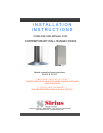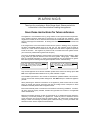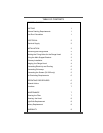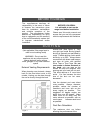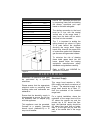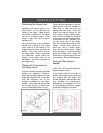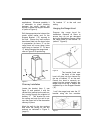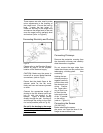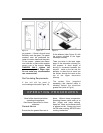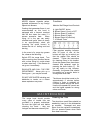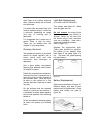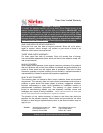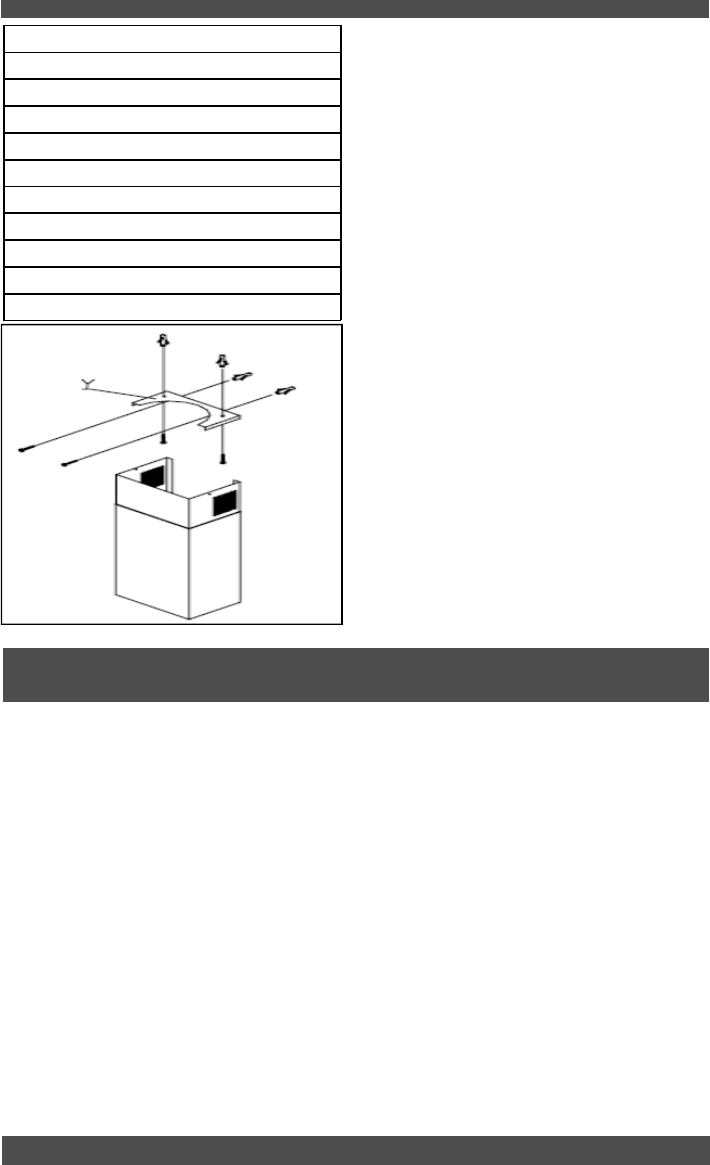
Figure 2
Maximum Run
6” or 3 1/4 x 10” duct 100 FT
Deduct
Each 90 elbow used 15FT
Each 45 elbow used 9FT
Each 6” or 3 1/4 x 10” duct
Transition used 1FT
Each 3’1/4 x 10” to 6”
Transition used 5FT
Side Wall with damper 30FT
Roof Cap 30FT
Electrical Supply
This range hood requires a 120V,
60Hz supply and draws a maximum of
3 amps. The electrical supply to the
range hood should be at least 17”
from the underside of the installed
range hood.
For a typical installation, where the
underside of the range hood will be
30” above the counter top and the
counter top is 36” above the floor
level, the electrical supply should be
94” above floor level and no further
than 3” to the right (as you face the
wall) of the central axis of the range
hood.
hood is 100’. Calculate your duct run
by measuring linear feet and adding
the elbows, transitions and caps
based on the table alongside.
The ducting connection to the hood
must be in line with the central
vertical axis of the range hood 1”
away from the back wall on which
the hood is to be mounted.
The 1” is important to enable the
ceiling bracket (
as shown in Figure
2)
to pass behind the ductwork
servicing the range hood. Range
hoods may interrupt the proper flow
of combustion gases from fireplaces,
gas furnaces and gas water heaters.
To minimize the risk of drawing
these lethal gases back into the
home, please follow the heating
equipment manufacturers safety
standards and guidelines carefully.
Refer to NFPA and ASHRAE for
additional information.
2
E L E C T R I C A L
WARNING: All electrical work must
be performed by a qualified
electrician.
Please ensure that the appropriate
electrical codes or prevailing local
building codes and ordinances are
adhered to.
Ensure that the electricity supply is
disconnected at source. Do not use
an extension cord or adapter plug
with this appliance.
This appliance must be grounded.
Connect to a properly grounded
branch circuit, protected by a 15
amp circuit breaker.



